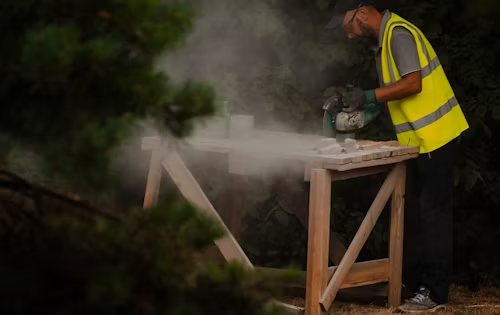
PHILOMATH, Ore. — When Interfor shut down its sawmill in Philomath last year, the closure cut more than 100 jobs and left a gaping hole in both the town’s economy and identity. For a city of fewer than 6,000 residents, the mill wasn’t just a workplace — it was a lifeline, a community anchor, and a symbol of the generations-long bond between Philomath and Oregon’s timber industry.

"We had no idea what was going to happen," recalled Mayor Christopher McMorran. "There was a lot of fear that that was going to be it."
For decades, timber has shaped Philomath’s culture. At the annual Frolic and Rodeo festival, logging trucks parade proudly down Main Street, chainsaw carving competitions draw crowds, and the legacy of mill work and forestry runs deep within families.
"My grandpa used to haul Oaks Mill. My dad has been in it since he came out of high school," said 19-year-old Hunter Pedder, who recently earned his log truck driver’s license. "For me personally, it’s really the life. I don’t really know anything else."
So when the last operating mill closed, the impact was personal. "The mill is the heart of the town, to be honest," Pedder said. "It just took a hard toll."
Philomath’s setback mirrors a broader challenge across rural Oregon, where traditional lumber mills have struggled with market fluctuations, reduced logging on federal lands, and the push for sustainable forestry practices. Yet instead of fading into history, the town is finding a new foothold.
Several smaller, next-generation sawmills and wood processors are opening in the region, focused on mass timber, engineered lumber, and sustainable building materials. These facilities align with Oregon’s growing demand for cross-laminated timber (CLT) and other low-carbon construction technologies — an industry where Oregon has become a national leader.

This shift is giving timber towns like Philomath an opportunity to reinvent themselves while staying true to their heritage. For residents, the revival isn’t just economic — it’s cultural. The reemergence of mill work, even in new forms, preserves a way of life that seemed to be slipping away.
Oregon is at the center of a timber industry transition, balancing environmental stewardship with economic survival. State officials, private investors, and university researchers are backing innovation in sustainable forestry and advanced wood products. The goal is to create jobs while maintaining forests for future generations.
For Philomath, this means hope. The pain of losing Interfor remains, but the rise of sustainable mills suggests a new chapter. By leaning into innovation while honoring tradition, the town is positioning itself not only to survive but to thrive.
Originally reported by Ezra Kaplan in KPTV.